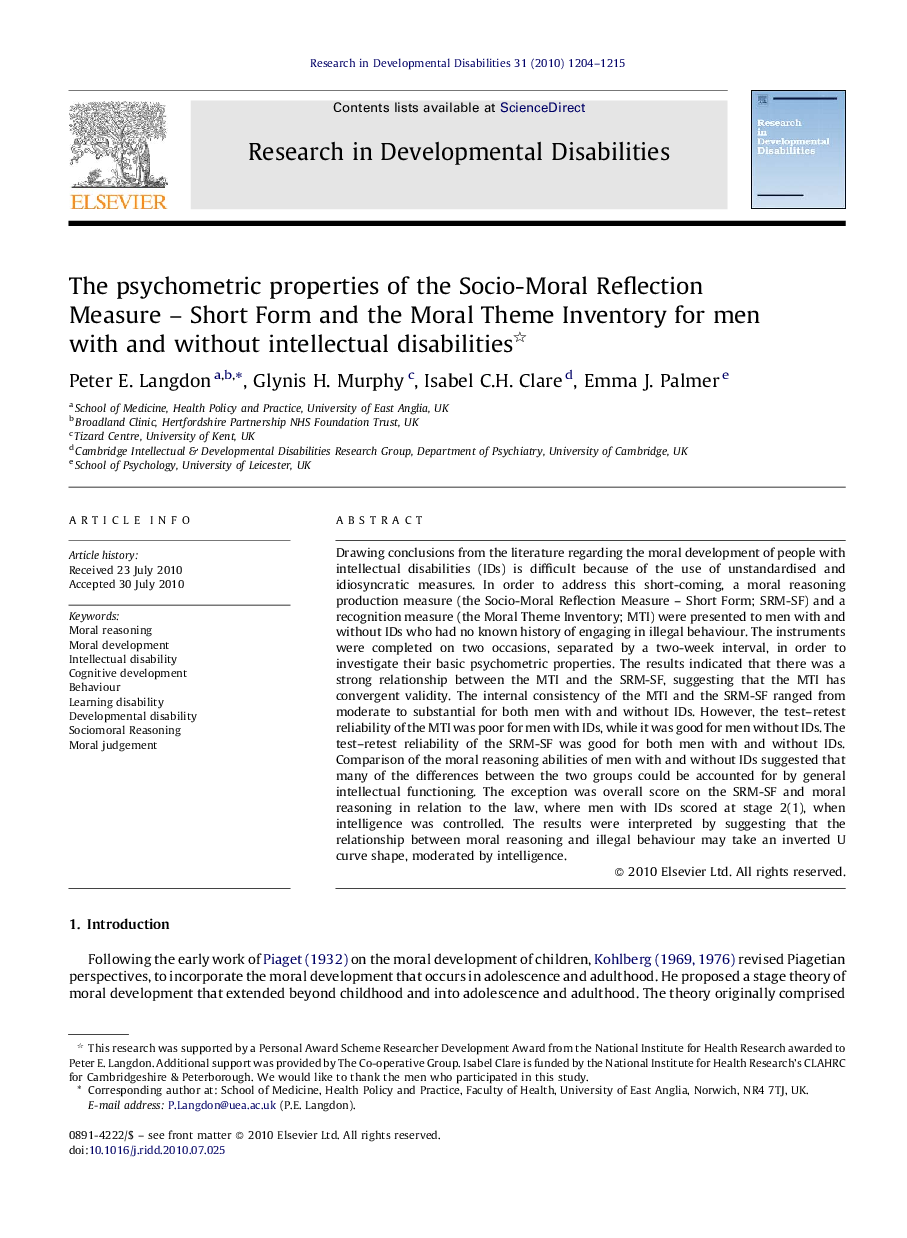| Article ID | Journal | Published Year | Pages | File Type |
|---|---|---|---|---|
| 10318261 | Research in Developmental Disabilities | 2010 | 12 Pages |
Abstract
Drawing conclusions from the literature regarding the moral development of people with intellectual disabilities (IDs) is difficult because of the use of unstandardised and idiosyncratic measures. In order to address this short-coming, a moral reasoning production measure (the Socio-Moral Reflection Measure - Short Form; SRM-SF) and a recognition measure (the Moral Theme Inventory; MTI) were presented to men with and without IDs who had no known history of engaging in illegal behaviour. The instruments were completed on two occasions, separated by a two-week interval, in order to investigate their basic psychometric properties. The results indicated that there was a strong relationship between the MTI and the SRM-SF, suggesting that the MTI has convergent validity. The internal consistency of the MTI and the SRM-SF ranged from moderate to substantial for both men with and without IDs. However, the test-retest reliability of the MTI was poor for men with IDs, while it was good for men without IDs. The test-retest reliability of the SRM-SF was good for both men with and without IDs. Comparison of the moral reasoning abilities of men with and without IDs suggested that many of the differences between the two groups could be accounted for by general intellectual functioning. The exception was overall score on the SRM-SF and moral reasoning in relation to the law, where men with IDs scored at stage 2(1), when intelligence was controlled. The results were interpreted by suggesting that the relationship between moral reasoning and illegal behaviour may take an inverted U curve shape, moderated by intelligence.
Keywords
Related Topics
Life Sciences
Neuroscience
Behavioral Neuroscience
Authors
Peter E. Langdon, Glynis H. Murphy, Isabel C.H. Clare, Emma J. Palmer,
